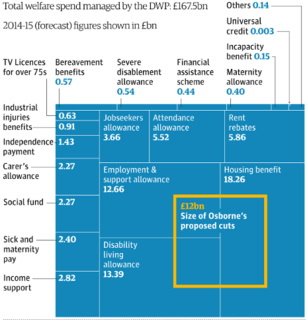Episode Nine: Polar Bears
John Lanchester
At an earlier stage of this general election, I thought about proposing one of those drinking games in which people have a shot or swig every time a Conservative on the campaign trail used the word ‘plan’. I’m glad I didn’t go ahead with that. Anyone who’d taken up the suggestion would now be in a clinic. It was already bad, but the Tory manifesto takes it to another level entirely. Guess how many times the word ‘plan’ occurs’. For purposes of reference, the Labour manifesto uses it 27 times. Answer: 121. It’s almost as if they were trying to stress the idea that they have a plan.
Apart from that, it’s nice to see some old friends from the 2010 manifesto, like reduced immigration, seven-day access to a GP, the £1 million threshold for inheritance tax and even the Big Society. I wonder if they’ll still be in the 2020 manifesto? And some new friends, who also show up in the Labour manifesto, like increased spending on the NHS, the triple lock on pensions, a crackdown on tax avoidance (Labour promises a ‘clampdown’) and of course our old mate, ‘no increases in VAT, National Insurance contributions or Income Tax’. Both parties promise a freeze on rail fares and universal broadband across the UK.
The Tory campaign so far has been criticised for being excessively focused on the past. The manifesto tries to fix that. There are some Tory-specific sweeties here: money for a ‘Northern Powerhouse’ and to make the Midlands ‘an engine of growth’, a tax break for higher earners in raising the threshold of 40 per cent tax to £50,000 (timing not specified), another for lower earners in raising the threshold of basic rate to £12,500 (timing not specified) and another in promising that anyone working 30 hours on the minimum wage won’t pay income tax (timing not specified); £15 billion for roads, £38 billion for railways, £790 million for rural broadband, £200 million for safer cycling, £6.9 billion for research infrastructure, and an extra £8 billion a year, above inflation, for the NHS. What’s that I hear you say? All these good things will surely mean an increase in the deficit? How wrong you are! By the end of this parliament, the deficit will have been abolished and will have turned into a surplus. So there.
The detail about this increased spending is generous. The detail about how it’s going to be paid for is less so. The cap on the amount of benefit received by a household is being lowered from £23,000 p.a. to £21,000. You would be forgiven for thinking that this will pay for everything, because it’s the only specific cut that is mentioned. Elsewhere there’s a promise, repeating something previously asserted by George Osborne, that the Tories will find £12 billion in ‘welfare savings’, added to another £13 billion in cuts in departmental spending. James Ball at the Guardian has made a vivid chart of what that ongoing £12 billion cut looks like:
That’s not a one-off: those cuts are money which would disappear from the annual budget. And that’s all we know about these cuts: further detail is lacking. These promised cuts, if they go ahead, will have an enormous bearing on every aspect of life in the UK, especially for the poor and the excluded and anyone needing social care, and this is the full discussion they get in the Conservative manifesto: ‘We will find £12 billion from welfare savings.’ Seven words. Whereas here’s the policy on polar bears: ‘We will press for full “endangered species” status for polar bears and a ban on the international trade in polar bear skins.’ Twenty-two words. The Tory manifesto promises £12 billion in welfare cuts, but gives three times as much space to its policy on polar bears.

Comments
-
14 April 2015
at
7:00pm
streetsj
says:
Is it slightly different this time round? None of the parties think it likely that they will have a majority so the manifesto is a starting point for bargaining rather than the final blueprint. (That's not saying that previous manifesto commitments are ever adhered to.)
-
15 April 2015
at
2:28am
Emmryss
says:
Got to get that polar bear vote.
-
15 April 2015
at
9:53am
Chris Larkin
says:
@
Emmryss
Well, with climate change as it is Polar Bears will soon be the ultimate floating voters.
-
15 April 2015
at
2:20pm
rupert moloch
says:
The scale and focus of those cuts is striking, and disturbing (leastways to me). But even more confounding is the way our native 'Strine tories consistently take policy cues from their UK compeers. Do they imagine themselves as dislocated satraps in the employ of the Colonial Office? Is it due the pernicious influence of a certain media baron? (rhetorical questions really I suppose)
-
16 April 2015
at
12:12am
Amateur Emigrant
says:
@
rupert moloch
It's trickle-down politics.
-
16 April 2015
at
2:14pm
gcsmith
says:
not to mention the cut in the 45p rate of income tax, but then that brings in so little revenue (due to tax avoidance?) that they don't need to explain how they're going to pay for that
Read moreNo one ever writes this but I've always assumed that the massive cuts "promised" by the Tories are aimed at the financial markets. They don't actually expect to carry them out - in the same way that they eased back massively in the last parliament.
Ironically the similarities between the Lab and Con plans might suggest to an impartial Martian that they would be the two parties most likely to form a coalition.